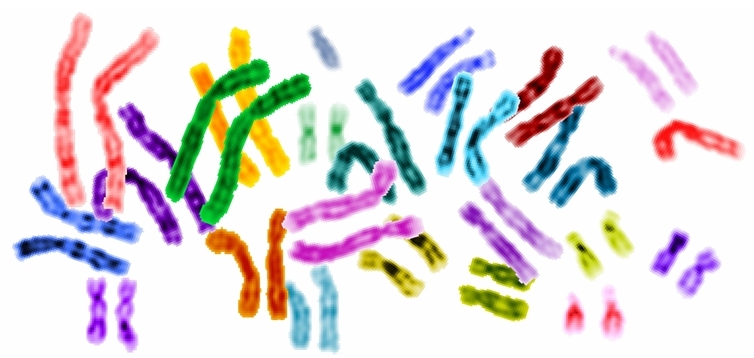

Article in Science by Global Alliance for Genomics and Health cites Brazilian Initiative on Precision Medicine (BIPMed) (image: Wikimedia Commons)
Article in Science by Global Alliance for Genomics and Health cites Brazilian Initiative on Precision Medicine (BIPMed).
Article in Science by Global Alliance for Genomics and Health cites Brazilian Initiative on Precision Medicine (BIPMed).

Article in Science by Global Alliance for Genomics and Health cites Brazilian Initiative on Precision Medicine (BIPMed) (image: Wikimedia Commons)
By Karina Toledo | Agência FAPESP – The importance of sharing data from genomic and clinical data studies to assure progress in the treatment of diseases is emphasized by The Global Alliance for Genomics and Health (GA4GH) in an article published in the June issue of Science.
One of the positive examples mentioned in the article is the Brazilian Initiative on Precision Medicine (BIPMed). Run by members of five Research, Innovation & Dissemination Centers (RIDCs) supported by FAPESP, BIPMed launched Latin America’s first public human genome database in November 2015.
According to the article in Science, despite much progress in recent years, “genomic and clinical data are still generally collected and studied in silos: by disease, by institution, and by country”.
The authors appeal for a paradigm shift, acknowledging that early data-sharing efforts have led to the “development of treatments for rare diseases and some cancer types”, but insisting that “such benefits will only be available to the general population if researchers and clinicians can access and make comparisons across data from millions of individuals”.
This is precisely what GA4GH hopes to achieve. It was founded in 2013 to help patients, researchers and physicians drive scientific advances by enabling “responsible and effective sharing of genomic and clinical data in a way that is as simple as using the World Wide Web”.
One of its best-known projects is Beacon, through which affiliated institutions, including BIPMed, offer an online service that answers yes/no questions without violating privacy or security. A typical question might be, “Have you observed any genomes with an A at position 100,735 on chromosome 3?”
Obstacles
Genomic data, which are often protected by confidentiality covenants, cannot be shared securely unless daunting challenges in the areas of ethics and logistics are properly addressed. Invasion of patient privacy is always a risk, researchers fear losing the advantage of exclusive access to data, and assembling data from the entire world into a single database would require vast resources and infrastructure.
The solution proposed by GA4GH in the Science article is a “federated data ecosystem”, in which data distributed across many databases and computers around the world would be virtually connected through software interfaces, but each institution would remain responsible for managing its own database and free to choose the level of access authorization granted.
The proposal drew the attention of Nature, which published an editorial about it.
“Imagine the difficulty of finding a specific book by gathering all the contents of a dozen different national libraries and then devising a way to integrate the numerous ways in which they are filed, tracked, recorded and made available,” the editorial says. “It would be much easier to ask each library whether it holds that book. What if data sharing in science could go the same way?”
As an example of what can be done, they cite Matchmaker Exchange, a tool implemented by GA4GH to help identify the genetic causes of rare diseases by comparing phenotypic and genotypic profiles.
The Nature editorial also stresses the risk of privacy invasion, noting that massive genetic studies in countries such as the United States, Qatar, Saudi Arabia and Brazil (meaning BIPMed) are collecting genetic data on millions of people and that a person’s identity could be discovered by mining all these data.
According to Iscia Lopes-Cendes, a professor at the University of Campinas’s Medical School (FCM-UNICAMP) and one of the creators of BIPMed, its human genome database is equipped with the means to assure confidentiality.
One of the shields it uses is a bootstrapping mechanism designed to prevent computer bots from submitting thousands of queries that could be used to identify a genome in the database. “With each query, the system adds a delay of 3 milliseconds to the response time until it reaches a point where it freezes,” Lopes-Cendes said.
In addition, BIPMed offers two levels of access. No authorization is required to query data on genomic variants and transcripts for a given population, but to access a group of individuals’ exomes (all the protein-coding genes in their genomes), for example, the user must sign an undertaking not to share the data with anyone and not to make it public. Initially, this will be possible only for research projects.
“Academic culture has to change so that researchers no longer feel they own the data they use, which more often than not is obtained from research funded by public money and material donated by other people,” Lopes-Cendes said. “Researchers funded by the US National Institutes of Health, for example, are required to make their findings public. If they don’t, they lose their funding. The same policy could be adopted by research funding agencies in Brazil.”
The RIDCs affiliated with BIPMed are the Brazilian Institute of Neuroscience & Neurotechnology (BRAINN), the Center for Computational Engineering & Sciences (CCES), the Center for Cell-Based Therapy (CTC), the Obesity & Comorbidities Research Center (OCRC), and the Center for Research on Inflammatory Diseases (CRID).
Read more at agencia.fapesp.br/22334.
Republish
The Agency FAPESP licenses news via Creative Commons (CC-BY-NC-ND) so that they can be republished free of charge and in a simple way by other digital or printed vehicles. Agência FAPESP must be credited as the source of the content being republished and the name of the reporter (if any) must be attributed. Using the HMTL button below allows compliance with these rules, detailed in Digital Republishing Policy FAPESP.





